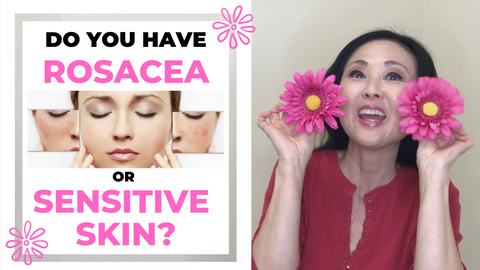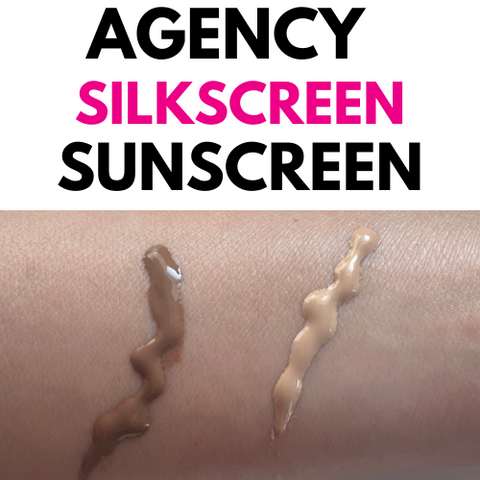Rapid Aging after menopause in regards to the skin, is one key element, according to one study.
Millions of dollars have been spent on anti aging skin care delaying rapid aging after menopause .
The average age of menopause is typically 50 years old. However, across the globe, the average age for menopause is the ages between 52-54.
According to one study, Steve Horvath, a professor of human genetics and biostatistics at the University of California, Los Angeles, stated that they found that menopause speeds up cellular aging by 6 %.
For example, the earlier a woman experiences menopause, the more likely she is to be biologically older than someone who experiences menopause later. If the woman is 42 years of age and she starts menopause earlier than someone who is 50 year of age, then the 42 year old woman is “biologically older” than the 50 year old woman by about a year.
What Happens to your Skin during Menopause and Post Menopause:
What Happens to Cheeks, lips, Under eyes Post Menopause:The key factor in loss of volume of the face is collagen. Collagen brings plumpness to the areas of the cheeks and lips.
Depending on the individual , there is as much as 30% of collagen lost within the first 5 years post menopause. This is mostly due to the gradual loss of estrogen. This can be seen on the face as loss of volume in the cheeks, lips, and noticeable dark circles under the eyes, thinning of the upper lip and fine lines around the lips start to become more apparent.
What Happens to Eyebrows Eyelids, Around the mouth, Saggy Jawline During Menopause and Post Menopause:
The skin starts to lose its elasticity (which makes the skin more able to bounce back) due to estrogen loss. The skin also starts to lose levels of glycosaminoglycans which plays a key role in signaling the skin to heal , skin cell proliferation, promotion of adhesion of skin cells, and other function of the skin to keep it healthy.
Over time, the eyebrow seems to start to appear like it is sagging, the eyelids start to begin to droop, the end of the nose starts to droop , and the skin around the jawline and neck starts to sag.
Post menopausal skin starts to become thinner and injury to the skin becomes easier such as bruising.
Menopausal and POST menopausal skin starts to become drier and itchier because estrogen also helps balance out the skins hydration and oil levels due to the glycosaminoglycans and oil production of the skin.
Key Element in Rapid Aging in Menopausal Skin:
I always refer to prolonged inflammation within the body leads to premature aging of the body and the skin.
Several studies have shown that as we age, the levels of ferritin in our bodies can increase leading to aging of the body and skin.
Ferritin is a protein that stores the iron and releases the Iron into the blood .
For women, the two primary ways that the bodies can get rid of excess iron is through menstruation and desquamation, which is the shedding of skin cells.
Post menopausal women are now prone to increased levels of ferritin if they are eating iron rich foods, taking a supplement that has iron and they lose one of the ways to get rid of excess iron.
In 2011, Dr Huang found that increased iron levels in the skin contributed to the rapid skin aging and photoaging after menopause as opposed to the more well known cause of aging skin due to decreased estrogen levels.
As explained in his white paper,, his investigation showed him that Iron and UVA work together to stimulate the activity of collagenase-1.
Collagenase-1 is an enzyme that breaks down collagen and elastin that ultimately leads to:
-skin thinning
-fine lines/wrinkles
-skin damage
Ferritin Levels and Rapid Aging After Menopause:
The best way to view this is in the video listed above.
However, if you can’t watch the video, here is the summary of the explanation below:
Let’s picture a round sphere. The round sphere represents the Ferritin. Ferritin is the protein that stores the iron inside, releasing it when your body needs it.
So similar to a whopper candy, the inside of the malt ball would represent the Iron .
The UVA (UV A) rays causes the ferritin to break down immediately releasing the “free iron” in the cells which then contributes to the formation of free radicals, which ultimately ages the skin.
Anti Aging Skin Care for 50s :Tips to help reduce ferritin levels in the body:
Tip 1: Reduce Intake of Iron Rich Foods:
-Red Meat
-Avoid eating iron rich foods with foods containing Beta Carotene/Vitamin C such as:
-Red meat with carrots and potatoes
-Spinach and strawberries or citrus fruits
-Seafoods high in iron such as tuna/mackerel ( I mention eating these if you are seeking to increase your vitamin D and your skin levels so if you have to decide which one is more important to you.)
Tip 2: Avoid Multivitamins high in Iron ( take multivitamins that are lower in Iron )
Best Tips on how to find the Right Multivitamin for women
Tip 3: Reduce Alcohol Consumption
Try choosing red wine where the polyphenols in the red wine can decrease some of the iron absorption
Both Coffee/Tea (especially matcha) can also inhibit iron absorption due to the polyphenols in the matcha.
Tip 4: Increase the intensity and the frequency of working out
*This is the BIGGEST IMPACT on ferritin levels !
This also includes interval training and weight training.
Studies have shown resistance training of at least 40 minutes and 3 times a week in ADDITION to walking /running can reduce the asymptomatic liver disease and reduce ferritin levels. This is also beneficial for strengthening bones for post menopausal women.
If you are using Vitamin C skin care, then it is even more important to reduce Iron for post menopausal skin.
Remember, Make is an ART and Skin care is a SCIENCE
Follow us @;
YouTube Channel: https://www.youtube.com/channel/UC4XGWX6eheTisHo8UBsdOWA
Instagram:@GoSeeChristy
Facebook:https://www.facebook.com/goseeChristyBeautyBoutique/
Twitter:https://twitter.com/goseechristy
Pinterest:https://www.pinterest.com/goseechristy/
Sources used:
https://www.pnas.org/content/113/33/9327.short
Calleja-Agius, J., and M. Brincat. “The effect of menopause on the skin and other connective tissues.” Gynecological Endocrinology 28.4 (2012): 273-77. Taylor & Francis Online. Web. 31 Jan. 2017.
Calleja-Agius, J., and M. Brincat. “The effect of menopause on the skin and other connective tissues.” Gynecological Endocrinology 28.4 (2012): 273-77. Taylor & Francis Online. Web. 31 Jan. 2017.
https://labs.selfdecode.com/blog/high-ferritin-reduce/
https://www.ncbi.nlm.nih.gov/pmc/articles/PMC4486897/
https://pubmed.ncbi.nlm.nih.gov/23752032/
https://pubmed.ncbi.nlm.nih.gov/10359784/
https://www.ncbi.nlm.nih.gov/pmc/articles/PMC4179187/
https://www.ncbi.nlm.nih.gov/pmc/articles/PMC4408516/



